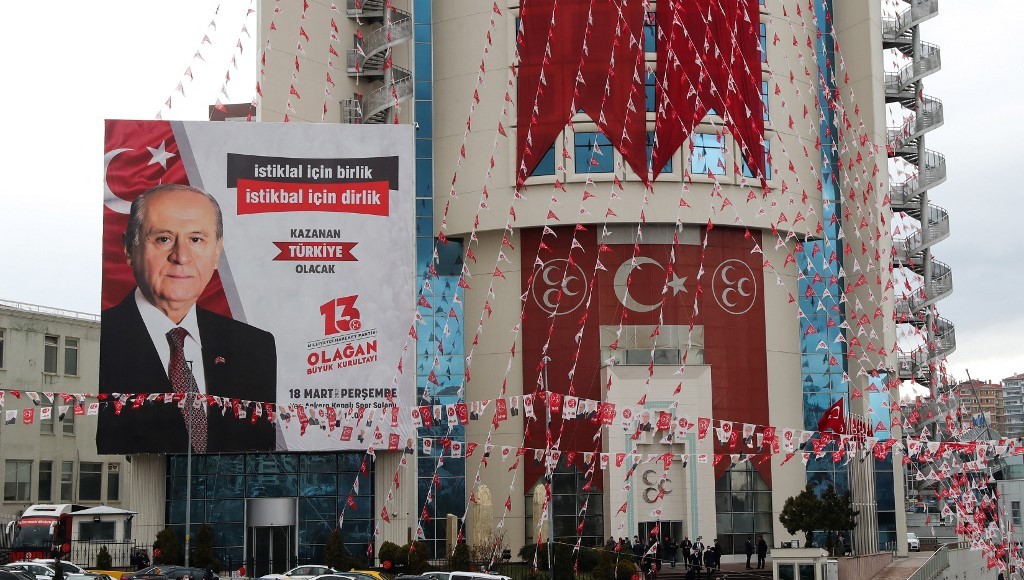The German federal government has said in response to a parliamentary question submitted by the Left Party that it is aware of the far-right Nationalist Movement Party’s (MHP) increasing influence over Turkey’s Justice and Development Party (AKP) government, Deutsche Welle Turkish service reported on Tuesday.
The federal government said it had observed that the MHP’s political demands were picked up by the Turkish government and regularly find their way into Turkish laws. Berlin added that it had information that the number of people connected to the MHP in the state structures had increased noticeably in recent years.
The remarks came in answer to a parliamentary question submitted by Left Party MP Ulla Jelpke, who argued that Turkish President Recep Tayyip Erdoğan was catering to the MHP and questioned the role of Turkey’s ultranationalist party over politics in the country.
Jelpke was quoted by DW as saying that Erdoğan was ready to do anything for an alliance with the “fascist” MHP in order to stay in power, given the decreasing sympathy for his ruling AKP.
The federal government has to understand that whenever it holds a meeting with Ankara, ultranationalist MHP members also sit at the table as an invisible partner, the Left Party MP stated, underlining that “fascists” could not be a partner of the German government.
Referring to the AKP’s increasing crackdown on the pro-Kurdish Peoples’ Democratic Party (HDP), the third-largest group in parliament and the newest party of the Kurdish political movement since its predecessors were shut down due to alleged terror links, Jelpke noted that it would be wrong to think the Islamist AKP was any better than the ultranationalists.
The MP claimed that the recent move by a top Turkish prosecutor to shut down the HDP, which came a year after the MHP began calling on Turkey’s top court to take action, was the AKP’s gift to the MHP to ensure the far-right party’s support in the long term.
Replying to the MP’s question on the targeting of AKP critics in Germany, the federal government said it was aware of the attacks and did not have any information that would suggest similar attacks would take place.
According to a DW report earlier in March, Germany’s Federal Criminal Police (BKA) registered 24 offenses in the category of “threats” targeting AKP critics between Jan. 1, 2016 and March 2, 2021.
Jelpke further asked in the parliamentary question if the German government was considering banning the Turkish nationalist Ülkücü movement in the country, also known as the Gray Wolves, the militant wing of the MHP that enjoys a well-organized structure in Turkey.
Berlin’s response stressed that they were always prepared to fight extremists and that banning such groups remained on the table.
German parties in November submitted a motion to parliament seeking to ban groups linked to the Grey Wolves, following in the footsteps of France.
The Gray Wolves’ ideology is mainly based on Turkish nationalism and thus, Kurds and other minorities in the country have occasionally been their targets. They reject the notion of Kurdish ethnicity and instead insist that Kurds are ethnically Turks.



